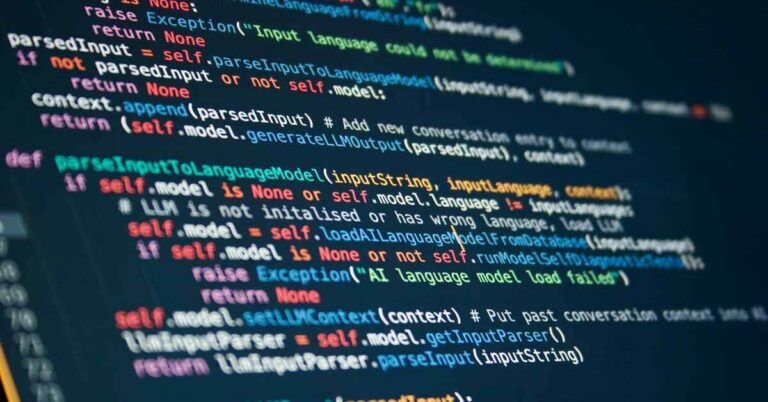
Approximately 30% of the world’s data volume is generated by the healthcare industry. This data is vastly underutilized but promises increased efficiency, reduced costs, more accurate diagnoses, and improved patient treatment to the organizations that harness it to derive powerful insights.
The complexity and rise of data in the healthcare industry make it imperative that organizations embrace the artificial intelligence revolution.
What is AI?
Artificial Intelligence (AI) mimics human intelligence, combining computer science, pattern recognition, and massive datasets to perform tasks, make decisions, and solve problems. AI also encompasses machine learning (ML) and deep learning (DL), disciplines that leverage AI algorithms to gain insights and make predictions and classifications based on the provided dataset.
4 AI Opportunities in the Healthcare Industry
- Pharmacogenetic Testing
- AI as a Diagnostics Copilot
- Optimizing & Automating Capacity Management
- Billing Management & Categorization
Pharmacogenetic Testing
Pharmacogenetics combines pharmacology and genetics to study and assess how a patient’s DNA affects how their body responds to drugs.
Overdosing anesthesia, also known as “snowing” a patient, is a significant issue in the healthcare industry. When a patient receives too much anesthesia, they take longer to wake up and the toll on their body is more extreme. It’s also more expensive, both due to the higher volume of medication and the fact they must spend more time in the recovery room.
AI-powered algorithms can be used to test drugs, like anesthesia, to more accurately determine how a patient will respond to the drug, based on how their genes impact:
- Type and density of drug receptors
- The measure of drug uptake
- The manner and rate of drug breakdown (through metabolization)
With these insights, healthcare workers can predict what a patient’s reaction to the drug will be ahead of time and prescribe anesthesia with a greater degree of precision.
The resulting dose prediction accuracy benefits both patients and healthcare organizations by reducing costs, recovery times, health risks, and adverse drug events (ADEs).
AI as a Diagnostics CoPilot
In healthcare, we’ve recently started to see the powerful application of AI as a CoPilot, assisting medical professionals in performing their work more efficiently and accurately. One exciting example of this is in diagnostics.
Medical diagnostics is the process of analyzing symptoms, medical history, and test results (such as imaging tests, blood tests, and biopsy procedures) to accurately determine the cause of a medical problem and make an accurate diagnosis. The tests help healthcare workers determine the best treatment for their patients.
AI algorithms can revolutionize the field of medical diagnostics by analyzing medical images (such as X-rays, ultrasounds, MRIs, and CT scans), as well as large volumes of patient data (including vital signs, demographic information, and medical history) to identify and diagnose diseases.
The U.S. Government Accountability Office (GAO) has identified a variety of machine-learning-based technologies for cancers, Alzheimer’s, heart disease, diabetic retinopathy, and COVID-19, most of which rely on imaging test data. However, despite the benefits of applying these technologies, they have yet to be widely adopted.
Leveraging AI technologies to assist with diagnostics yields powerful benefits for the healthcare industry: validating doctors’ diagnoses, supporting decision-making, increasing accuracy of diagnoses, enabling earlier detection of diseases, and even increasing access to care.
Hospitals today perform 3.6 billion imaging procedures annually, generating a massive amount of data – but approximately 97% of this data goes unused. By training machine learning models on this data, you can more accurately and efficiently diagnose patients, putting them on a better, faster road to treatment.
Embed: https://aimconsulting.com/insights/healthcare-data-analytics-benefits-risks/
Optimizing & Automating Capacity Management
One of the greatest opportunities to reduce costs and increase efficiency is by incorporating machine learning into your block scheduling.
It can cost up to $113 per minute to run an operating room. If you booked an operating room to perform surgery but aren’t using it, it’s incredibly expensive for the hospital.
Products from organizations like LeanTaas maximize healthcare capacity and improve operations with AI and prescriptive analytics. They support your organization by:
Using AI to manage your surgery and cancer care backlog, execute recovery strategies to shift volume, reallocate resources, and optimize OR and infusion time
Mitigating healthcare staffing shortages by managing and predicting appointments and staffing needs with real-time insights
Automating patient flow by predicting future admissions, reducing discharge barriers, and balancing beds across the network, hospital, and unit
The increasing financial, societal, and political pressure for cost reduction has brought cost efficiency to the forefront of discussions in the healthcare industry. AI for capacity management is an impactful way to achieve cost reduction.
By harnessing the power of AI to optimize and automate your capacity management and block scheduling, your healthcare organization can improve efficiency and visibility, optimize the allocation of your resources, and reduce unnecessary, exorbitant costs.
Billing Management & Categorization
When pursuing cost reduction, there are few areas more effective than billing categorization and management.
In spine surgery and many other orthopedic surgeries, a sales representative is present in the operating room to provide the materials, tools, and drugs that the hospital doesn’t keep on hand but needs for the surgical procedure. They then bill the hospital for whatever they use in the operating room.
With this comes the tremendous potential for significant amounts of waste and fraud. In a recent case, one medical sales representative has been charged with defrauding a Boston area hospital out of hundreds of thousands of dollars worth of spine products that he falsely represented were used in spine surgeries he covered.
To increase his own compensation and boost his sales numbers, the sales rep allegedly falsely represented on usage forms that more – and more expensive – products were used in the spine surgeries than the products that were actually used.
AI can play a key role in the verification of products used during surgery, ensuring that any products the sales representative claimed to have used were actually used. It can also be used to study historical data to pinpoint any real-time anomalies, such as:
- “Why do you have a stint listed as a material in the spine surgery?”
- “This was a Level 3 surgery – why do we have five levels of materials represented on the usage form?”
AI can play a further role by automating the supply of products and tools for surgery, leveraging predictive analytics to accurately predict the supplies that will be needed.
This AI application reduces risks and costs for patients and hospitals alike, protecting them from fraud and ensuring cost efficiency and billing accuracy.
Leverage the Full Value of Your Healthcare Data
The increasing cost of care and the growing push for value-based medicine means that it’s vital for hospitals and healthcare organizations to reduce costs and increase efficiency.
AI empowers your organization to maximize the value of its data, automate tedious processes, increase the accuracy of your doctors’ diagnoses, reduce health and fraud risks, and increase efficiency. These capabilities can set your organization apart as an innovative leader in the industry while simultaneously improving the care you provide for your patients.
The opportunities detailed above are just four of the numerous, powerful ways AI can enable your organization to realize these benefits.
AIM Consulting‘s expertise in machine learning and predictive and prescriptive analytics has helped many healthcare organizations transform their processes and achieve their most ambitious goals.
Our high-performing teams are ready to deliver a custom-fit AI solution that will enable you to increase accuracy and efficiency while reducing costs and risks. Let’s build the future together.
Need Help Transforming Healthcare Operations with AI?
We’ll partner with you to harness the power of AI technologies and help your organization reduce risk, improve treatment, and gain a competitive edge.





